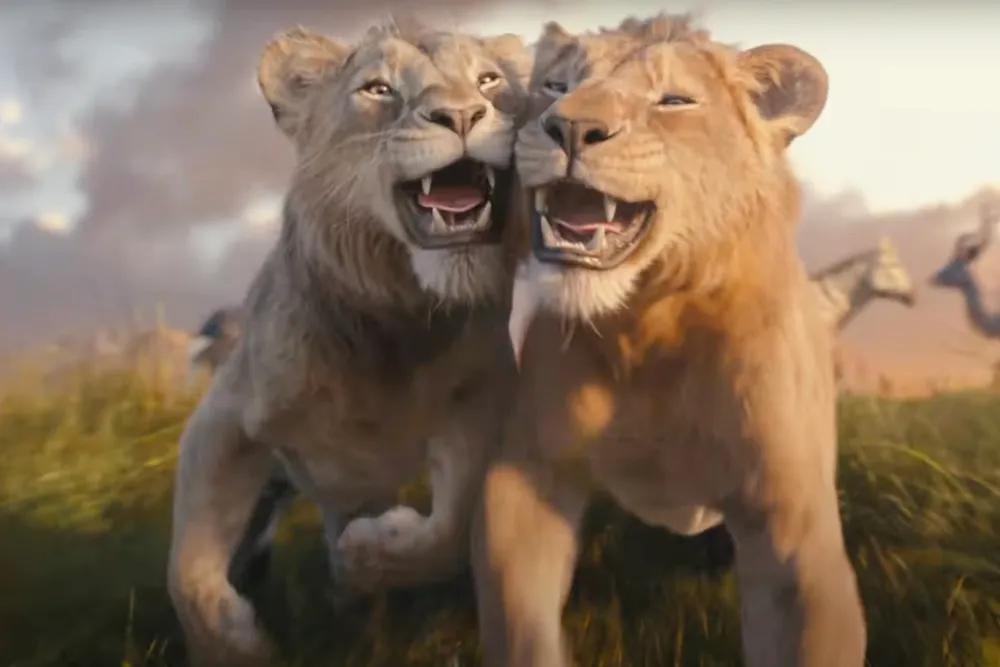Say what you will about Jon Favreau’s photorealistic remake of The Lion King. Still, Disney has decided that they should make a similar prequel that tells the backstory about Mufasa and how he became the king, along with how he and his brother Scar became adversaries. For some reason, director Barry Jenkins signed on for this film, and I can easily detect why this movie is why the filmmaker has been hesitant about his feelings about the entire experience.
The story is told by Rafiki (John Kani), who shares how Mufasa emerged as the leader of the area where the lions live among the various animals of the territory. While Simba (Donald Glover) and Nala (Beyonce Knowles Carter) leave their home to seek a more peaceful area for birthing their recent offspring, their daughter, Kiara (Blue Ivy Carter) must stay behind under the care of Pumba (Seth Rogen), Timon (Billy Eichner), and Rafiki while laying low during a fierce thunderstorm.
To calm Kiara during the intense weather, Rafiki tells her, Pumba, and Timon how her grandfather, Mufasa (Aaron Pierre), became the king. This story involves the separation of Mufasa from his parents and the adoption by a new pack of lions, which includes a cowardly lion named Taka (Kelvin Harrison, Jr). Though Taka accepts Mufasa as a brother, his father, Obasi (Lennie James) is fearful and prejudiced against strays. Mufasa must always prove his worth to his new family while trying to help his brother overcome his fears.
Written by Jeff Nathanson, Mufasa: The Lion King starts well, but the story feels rather heavy-handed when it reaches the third act. It is the task of the filmmakers to link this story to what happens in the first film, and the final act comes across as a rushed checklist of things it needs to accomplish. Everything leading up to this moment works well but crumbles when time constraints and end goals demand more.
I enjoyed some of this movie but felt cheated regarding the humor. There are many attempts at getting laughs from the audience, but many of the gags don’t work. In addition, the CGI used to bring the animals to life doesn’t always look great. Finally, most of the songs in the movie are not all that memorable.
As much as I enjoyed portions of this film, I cannot recommend that my readers watch Mufasa in theaters. This prequel is one of those films that is totally fine at home, and the big screen at the cinema only enhances the movie’s visual weaknesses.
